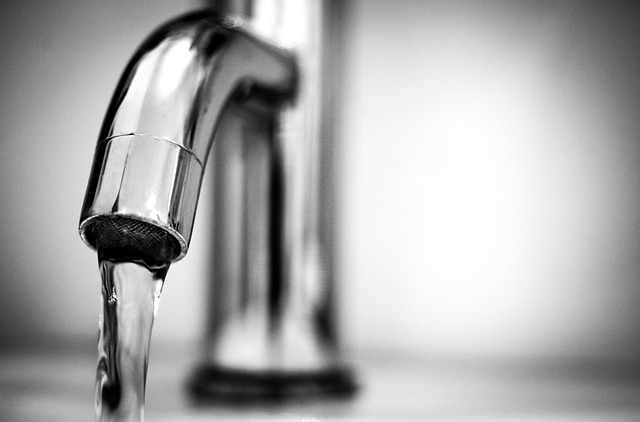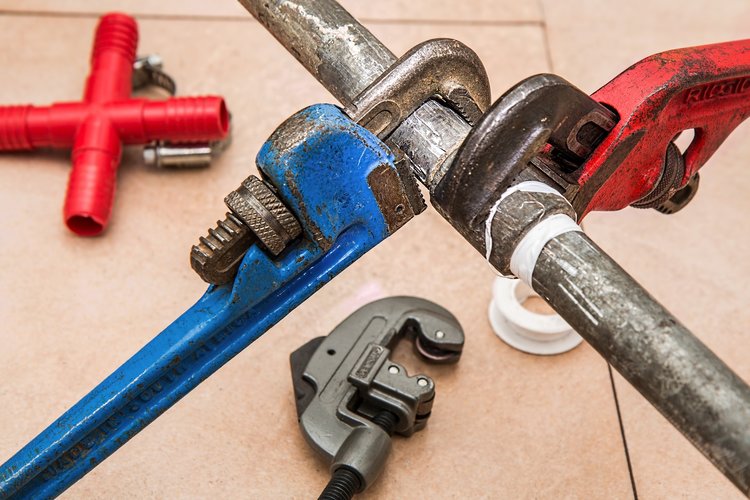
Plumbing is often one of the most overlooked systems both in high-rise buildings and residential apartment blocks. Fixing a leaky faucet or a running toilet in your own house is one thing, but if you own a company that operates in the property management sector, plumbing issues can have grave effects both from a financial and business standpoint.
Whether you manage schools, office buildings, apartment blocks, or healthcare facilities, you will not be spared by the occasional plumbing issue occurring and filling your inbox with complaints. And for good reason – faulty plumbing systems can affect the property in many ways, from permeating the building with unpleasant smells, helping mold develop in certain places by creating moisture, to degrading the overall structural integrity of the building.
Without further ado, here are ten things you should know about plumbing.

Image by Rudy and Peter Skitterians from Pixabay
1. Automatic Leaks Detector
Taps, sinks, pipes, and other items may not last forever and may eventually weaken and start leaking. Some property managers let pipes stay for long after they have proven in disrepair, so eventually installing new ones at some point is essential. Assess the damages that the pipes and sinks have suffered and, if the situation calls for it, replace them with brand new ones. From a business standpoint, it is cheaper to replace old pipes than completely renovate the interior in the aftermath of a water-related accident. You can ask a professional plumber to inspect your water system and upgrade it where necessary. Consider installing the latest systems which can detect leaks in the property.
Moreover, keep in mind that the piping infrastructure in the United States is aging rapidly. In 2017, the average age of most pipes in the country was around 47 years old. The situation is worse in New York and Philadelphia, where the pipes are pushing 70. Therefore, ensuring that the building has working plumbing is vital.
2. Water Pressure
Water pressure is another plumbing aspect that experts should notice. Typically, in your average household, the water pressure should be under 80 psi.
The situation changes when it comes to bigger structures, such as high-rises or other public buildings. Buildings that are higher than eight stories require pumps, which transport the H2O into water tanks on the highest floor. This system is designed to ensure that water is distributed equally amongst all floors without sacrificing the level of water pressure.
On the other hand, high water pressure is one of the main causes of water-related accidents in all types of buildings, especially in smart homes. Moreover, since plumbing and construction technology have advanced, damages caused by flooding are even more expensive to repair.
3. Submeter
When it comes to large buildings like high-rises, submetering is the most practical approach. A submeter is an intricate system that allows landlords, condominium associations, landlords or other legal entities that manage buildings to charge tenants for individual consumption.
A study ordered by GE Sales Development Retail and Property Management and conducted by Lou Mane shows that submetering is the most practical approach regarding consumption measurement.
4. Prevention
As always, taking preventive measures is cheaper than handling the problems right after they occur. One way to prevent any plumbing accidents is to ensure that everything is correctly installed. Loose pipes or improper installation of plumbing traps for urinals are two of the most common causes of damage to the building. That is why regular retightening and check-ups are important to perform.
The same thing applies to toilets. If you are receiving complaints about broken toilets, it is cheaper in the long run to just replace them than do shoddy patch-up works.
5. Plumbing Appliances
Each sink or toilet in any chosen building has a shut-off valve that allows the water supply to be cut off. Tour the property, locate the flaps, and learn how to turn off the water supply in case toilets burst at night when there is no staff to attend to the situation.
Additionally, determine the location of the main water valve and how to operate it. In case you need to control or cut off the water supply, knowing how to operate it will prevent further damage from occurring.
6. Water System
Every building has a turn of valves that are strategically spread around to provide easy access to them. By instructing and teaching your staff how to operate the water system, many future accidents can be prevented, which could be potentially costly from a business standpoint. Additionally, as a property manager, identify the limits concerning plumbing repairs your staff can handle and hire outside experts to do the job that you can’t do.
7. Chemicals (Do Not Fix Water Problems)
Some property managers purchase chemicals and pour them down drains to clean them. It’s important to note that compounds might fix the problem but at a cost. Chemicals weaken drain pipes and sinks and eventually cause damage. Sewerage lines and underground pipes often rot after exposure to chemicals. Thankfully, experts have been working on new water-cleaning technologies for years, so it is safe to assume this scenario might become obsolete sooner rather than later.
8. Consult a Professional Plumber

If the water system is experiencing persistent problems, reach out to a group of experts. The plumber might be expensive but will indeed save your business thousands of dollars in repairs. While training your staff to repair minor issues might be cheaper in the short term, outsourcing the job to external companies could prove to be more profitable in the long run.
9. Routine Maintenance Helps
Check your water lines on a regular basis. Keep an eye on the heater, wet walls, toilet, and the drops from the sink. Routine maintenance will reduce leakages and property damage from spreading further. Do not ignore any water issues, no matter how minor they might seem at first glance. Small leakages can degenerate into bigger ones, requiring a full remake of the plumbing system.
10. Large Food Particles and Oils Block Pipes
Make sure to instruct any staff, office workers or tenants not to flush any grease into the kitchen sink. Bonney’s CEO Allen Crick says that oils and grease can clog the pipes. The cooking oil should be poured into cartons and disposed into the trash. The same thing applies to food waste – potato peels can block the sink and lead to water spillage.
Final Thoughts
Maintaining a running water system in your house helps handle emergencies when they arise. A professional plumber will quickly identify and fix leakage issues in your water systems before they expound to become expensive disasters.
Jason R. Kelly, President of the Intelligence Service, advocates for regular checks on vulnerable water points in your house. With these ten essentials, you will handle plumbing issues and save on costs related to water damage.
And fortunately, if these don’t convince you, there are many other brilliant DIY Youtube channels out there you can learn from. These can give you a helping hand both in more imminent situations and for your general knowledge and passion. So if DIY is your game, be sure to check’em out!
Author: Vincent West
With an educational background in Engineering Design and a personal interest in all things construction and workforce-related, Vince is behind WorkBootCritic.com. He’s a news geek, especially when it comes to keeping up to date with the industry’s biggest developments.
 March 20, 2018
March 20, 2018